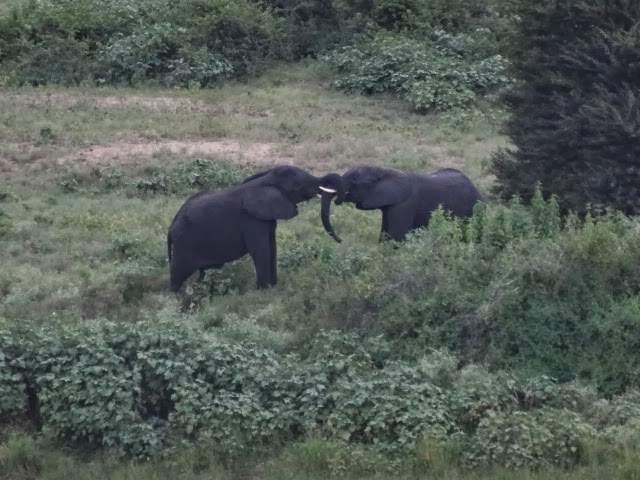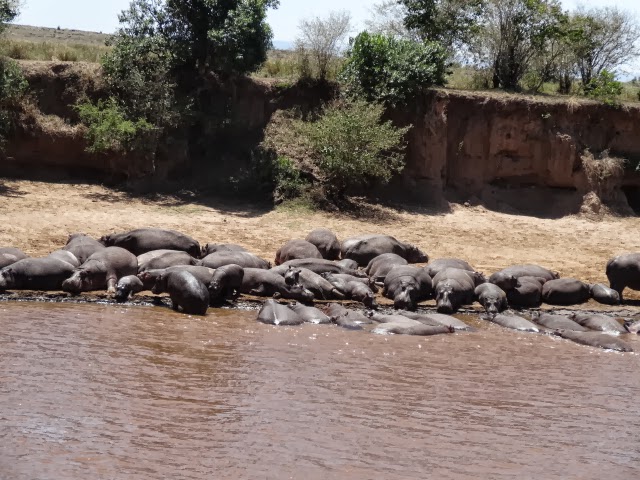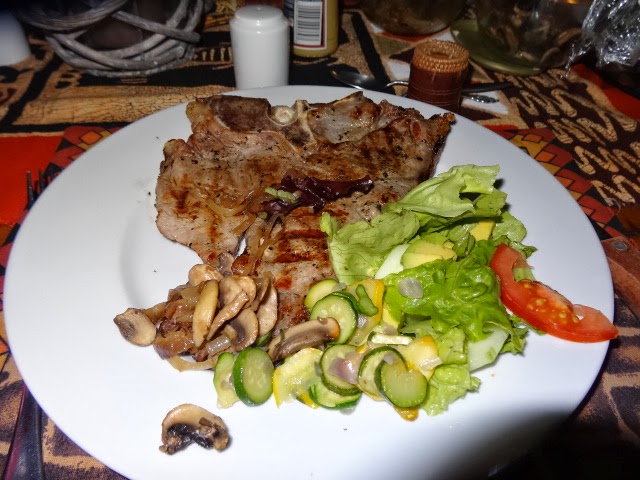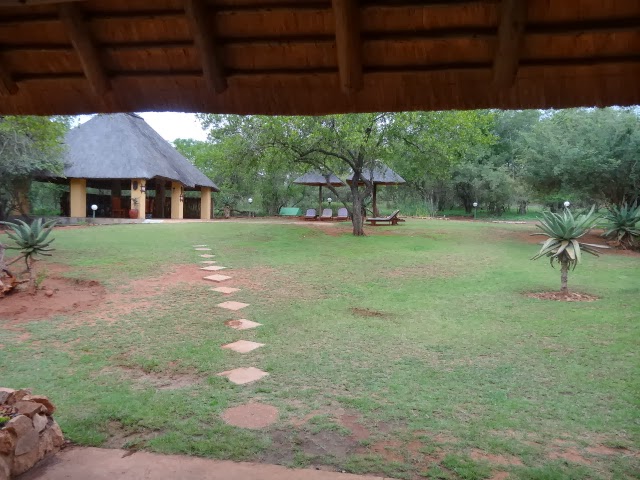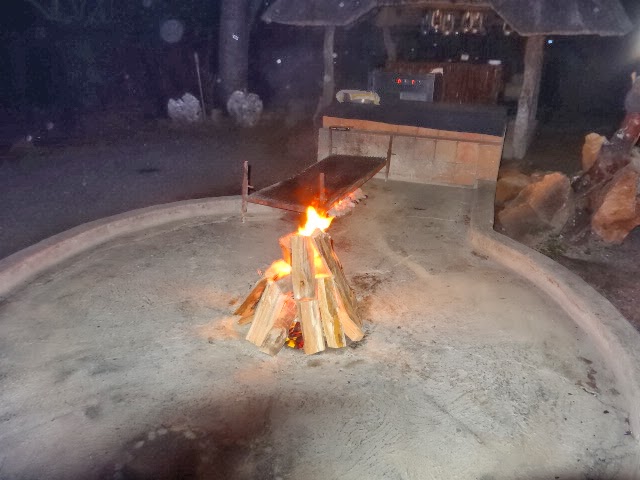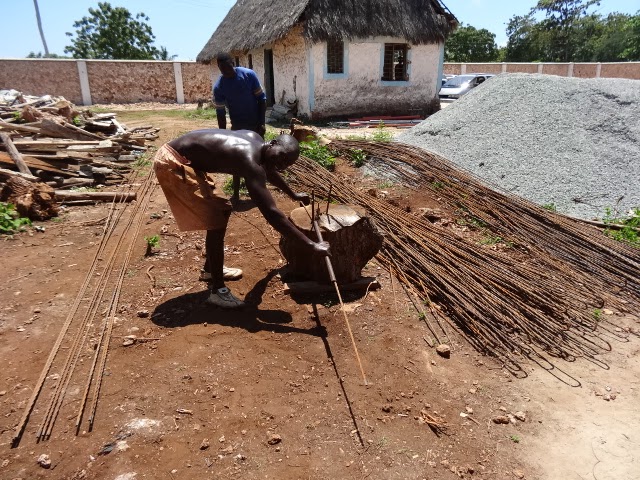 |
| “Hey, you guys, come on! They’re serving pellets for breakfast!” |
 |
| This morning, zebra mom was scolding her baby about fighting for the pellets. |
The seven of us and coincidentally, seven zebra visitors had a night we’ll always remember. Even Mr. Tree Frog returned to his perch in the rafters after a 36 hour absence.
 |
| Check out those interesting suction type toes. Mother Nature certainly provides the appropriate body parts to aid in functioning in life. Mr. Tree Frog came down from his usual perch to show off for our guests, later returning to his usual spot in the veranda rafters this morning. |
Later in the evening, while the festivities were in full bloom, he made a rare appearance on the wall in the veranda enabling me to take this close up of him. This morning he was back on his usual perch, in the exact spot, in the rafters.
 |
||
From left to right, Okee Dokee, Louise, and Dawn.
|
 |
| The table was set and we were ready for our feast. |
 |
| The zebras visited, hanging around most of the evening. On the left is Dawn and Leon, our friends and owners of Jabula Lodge, as Tom tosses the pellets. |
 |
| As soon as we ran out of the carrot chunks they looked at us for more. |
 |
| Although zebras are herbivores, they enjoyed the fire and the smell of the meat. |
How does one become attached to a frog? In reality, it’s no different than the excitement we feel when any visitors come to the yard. They are God’s creatures with their own unique story and purpose in our world.
 |
| Feeding the zebras by hand using a flat palm. |
The party? Stupendous! The food worked out well. It was fun to share an American type meal with our South African friends and they enjoyed it. But, most of all, the companionship, conversation, and laughter was as delightful as it could have been.
 |
| Finally, at 9:00 pm, we were ready to dine. With starters earlier, none of us minded the late meal. |
Danie managed the braai, making a roaring fire to cook the sweet corn and steaks with Tom at his side. Once the fire was at a full roar, the zebras appeared, gathering around the braai, two together and another five together shortly after the two departed.
 |
| This morning, the family of five was back including one mom and baby, one pregnant mom and two young males. |
 |
| “See, I can reach up there for a few pellets.” |
What is it about the noise that attracts the zebras? Simple. They associate “partying” humans with treats. Makes sense. Last night, we went through an entire bag of carrots.
 |
| Last night, this baby spit out the chunk of carrot. Today, she’s anxious for more pellets. |
This morning, we’re busy packing for an overnight stay at a safari camp directly on the Crocodile River that we’ve been invited to by the owners, orchestrated by Louise and Danie. We’ll be sleeping in a tent with AC, a bed, and a bathroom. Sounds good to us.
 |
| Mom and baby cuddling. Zebras are very affectionate with one another. |
Our minds, preoccupied with packing to leave in three days, make packing for an overnight trip a challenge. But, we’ve been graciously invited and we accepted. If necessary, we could pack everything in one day.
 |
| Happily sticking out her tongue at the prospect of more treats while making eye contact. |
We leave for the lodge at 2:30 today, returning less than 24 hours later. Once back at the African Reunion House, on Wednesday, we’ll start folding, sorting, and packing. The diversion may prove to be good for us with our minds wrapped around our departure on Friday.
We’ll be back tomorrow with photos from a day and night spent living on the shore of the Crocodile River, meeting new people, and tonight’s bush braai at the campsite. Crocs, anyone?
 |
| Okee Dokee displaying this beetle we found inside the house during the party. |















